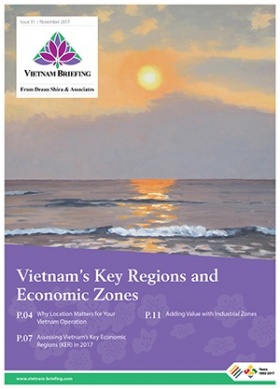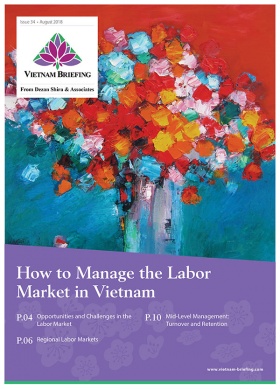Vietnam Social Security Scheme Update for Expatriate Workers
The government has issued the Social Security Scheme for expatriate workers, also known as Decree No. 143/2018/ND-CP, which will enter into force on December 1, 2018.
Expatriate employers and employees should familiarize themselves with term amendments since new regulations will affect payroll and taxation.
Both employers and employees are responsible for contributions to the scheme; the compulsory insurance package covers pension, sickness, maternity, labor and occupational accidents, retirement, and survivorship.
Expatriate workers subject to the new law on social insurance are defined as foreigners with a minimum one-year labor contract that have been granted a work permit, practicing certificate, or practicing license.
Workers exempted from the new social security measures include intra-corporate transferees and employees who have reached Vietnam’s statutory retirement age, which is 60 years for males and 55 years for females.
Social insurance contribution rates
The contribution rates will be applied equally for both expatriate and Vietnamese employees at a rate of 8 percent, while the employers’ rate is set at 17.5 percent. Both, however, have a capped limit of 20 times the nation’s minimum salary (the current minimum salary is VND 27,800,000 or US$1,200 per month).
Now with the change, employers must make contributions for foreign employees at 3.5 percent of their monthly salary between December 1, 2018, and December 31, 2021.
But beginning January 1, 2022, the rate will increase to 17.5 percent, separated into the following categories: 14 percent to retirement and survivorship, 3 percent to sickness and maternity funds, and 0.5 percent to occupational disease and accident funds.
Employees will not be subject to make payments until January 1, 2022; their 8 percent of contribution rate will fund retirement and survivorship.
If an expatriate employee has numerous labor contracts with different employers that are all subject to mandatory social insurance, standard contribution rates for the employee will apply to the first contract and will be exempted from making payments for the rest.
Each employer is still responsible for compulsory social insurance with each contract, however, payments will only fund insurance for labor accidents and occupational diseases.
A lump-sum payout option for the retirement benefit will take effect on January 1, 2022.
Foreign workers entitled to this claim include: those who have reached retirement age but have not contributed to social insurance for 20 years in full, have a terminal illness under the scope of Vietnam’s criteria, qualified for retirement allowances outside of Vietnam, or have a terminated labor contract, expired practice license, and limited timeframe under a work permit.
Concerns for expatriate workers and businesses
Foreign workers that contribute to domestic social security schemes or invest in voluntary healthcare programs will be burdened with additional costs. Furthermore, foreign contribution payments for retirement and survivorship appear unnecessary for those who enter the country under comparatively short-term contracts.
Meanwhile, small and medium firms that require foreign workers are sensitive to labor costs. Employers will be burdened with additional payment contributions for foreign employees, likely minimizing the number of foreign workers hired, and the technical skills they bring to the economy.
Still, while many expatriate workers and employers will most likely object to the mandated taxation scheme.
Bùi Sỹ Lợi, vice chairman of the National Assembly’s Social Affairs Committee, has told the media that the implementation of social insurance changes is needed to ensure fairness between companies that employ local people and those that hire foreigners.
Nevertheless, the government will still face implementation challenges.
Tran Dinh Lieu, Vietnam’s Social Insurance Department Deputy Director, voiced concern over several challenges the government and industry must face once the new scheme is enacted, namely a synchronized database between different countries, in addition to currency conversion and the tax issues that will be raised.
About Us
Vietnam Briefing is produced by Dezan Shira & Associates. The firm assists foreign investors throughout Asia from offices across the world, including in Hanoi and Ho Chi Minh City. Readers may write to vietnam@dezshira.com for more support on doing business in Vietnam.
- Previous Article Vietnam’s Food Safety Regulations
- Next Article Vietnam’s Average Wages on the Rise






























